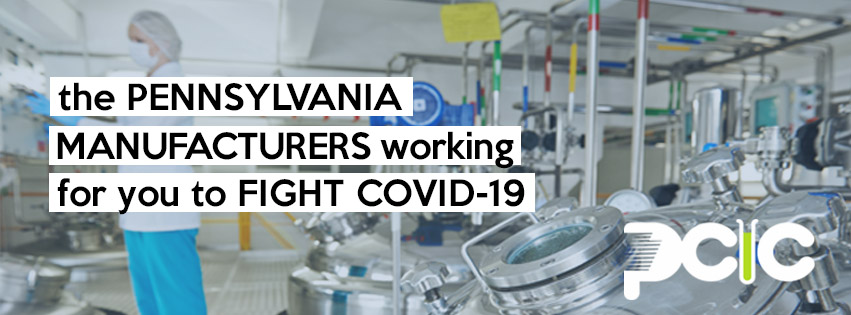As many of us adjust to working from the couch, with daytime television in the background and a confused dog at our side, it’s business as usual or double-time for the majority of Pennsylvania’s manufacturers and their supply chains.
Critical to our ability to contain COVID-19, flatten the curve and treat those with confirmed cases are the necessary tools, supplies and infrastructure for the healthcare professionals on the front lines to get the job done.
Disinfectants and intensive care medical equipment, such as ventilators and respirators, personal protective equipment such as reusable masks and gloves, therapeutics and laboratory supplies are all created using, or supported by, chemical manufacturing and each of these products are currently being manufactured in Pennsylvania.
For the rest of us practicing social distancing from the confines of our home, we still need clean running water, electricity, food and medications to stay safe and healthy -- and that means continued manufacturing operations.
The products in your grocery store, the ingredients for your last Grubhub order and the package containing the last available roll of toilet paper on Amazon that was just delivered to your doorstep don’t originate from just one retailer or one manufacturer. A product’s journey from raw material to your home is supported by hundreds, sometimes thousands of different companies.
Take disinfectant wipes as an example -- a combination of polyester, cotton, cellulose from wood pulp, rayon fibers and sometimes polypropylene and polyethylene to reinforce the strength of the sheet. Each of those is a separate raw material manufacturer. To provide the cleaning and disinfectant power, wipes will typically contain potassium hydroxide, sodium hypochlorite, ammonium chloride and other substances. Again, a variety of chemical manufacturers support the production of those chemicals.
That is just a description for the product. You also need packaging -- polyethylene or a pulp papermill to make the package, ink for labeling, adhesives to seal it, pallets to load and unload the product onto a truck, auto part manufacturers to ensure trucks can keep moving product and we haven’t even begun to dive into the manufacturers that make the parts and service the machines used by other manufacturers that are now working overtime to fulfill demand and will most certainly need replacements and repairs.
You can see how if the wrong jenga piece is pulled, it all comes crashing down, leaving food to rot at the manufacturer or cleaning supplies stuck in one part of the chain with no way to move forward.








